SUSTAINABILITY ALL THE WAY DOWN SRI RAMKRISHNA ONEAPI COMMUNITY MANAGER | INTEL ERIK RIEDEL, PHD CHIEF ENGINEERING OFFICER | FLAX COMPUTING
A presentation at All Things Open in November 2022 in Raleigh, NC, USA by erik riedel

SUSTAINABILITY ALL THE WAY DOWN SRI RAMKRISHNA ONEAPI COMMUNITY MANAGER | INTEL ERIK RIEDEL, PHD CHIEF ENGINEERING OFFICER | FLAX COMPUTING

SUSTAINABILITY DEMANDS COMPREHENSIVE APPROACHES Renewable energy progress is great, and necessary, but INSUFFICIENT

natural resources carbon footprint demand growth

clouds drive demand https://greensoftware.foundation/ inefficient toolchains software footprint

SUSTAINABILITY ALL THE WAY DOWN Focusing on Software / Applications it the “top” of the stack Hardware is at the “bottom” of the stack The stack is DEEP and WIDE Software and Hardware sustainability can work together to realize complete sustainability – across Scope 1, Scope 2, Scope 3 Let’s talk about hardware and the sustainability work that’s happening today

Open Is Necessary, But Not Sufficient Per Se design, engineering and product expertise, rigorous commitment to component quality [hardware] design, engineering and product expertise, rigorous commitment to component quality from capacitors to CAP theorem to cognitive load wide dynamic range of skills must be applied & appreciated ORCHESTRATING AN OPEN HARDWARE + OPEN SOFTWARE STACK [software] requires baseline partnership across hardware & software devops – collaboration from designers & developers to operations automation, analytics, and machine learning for all the things 8
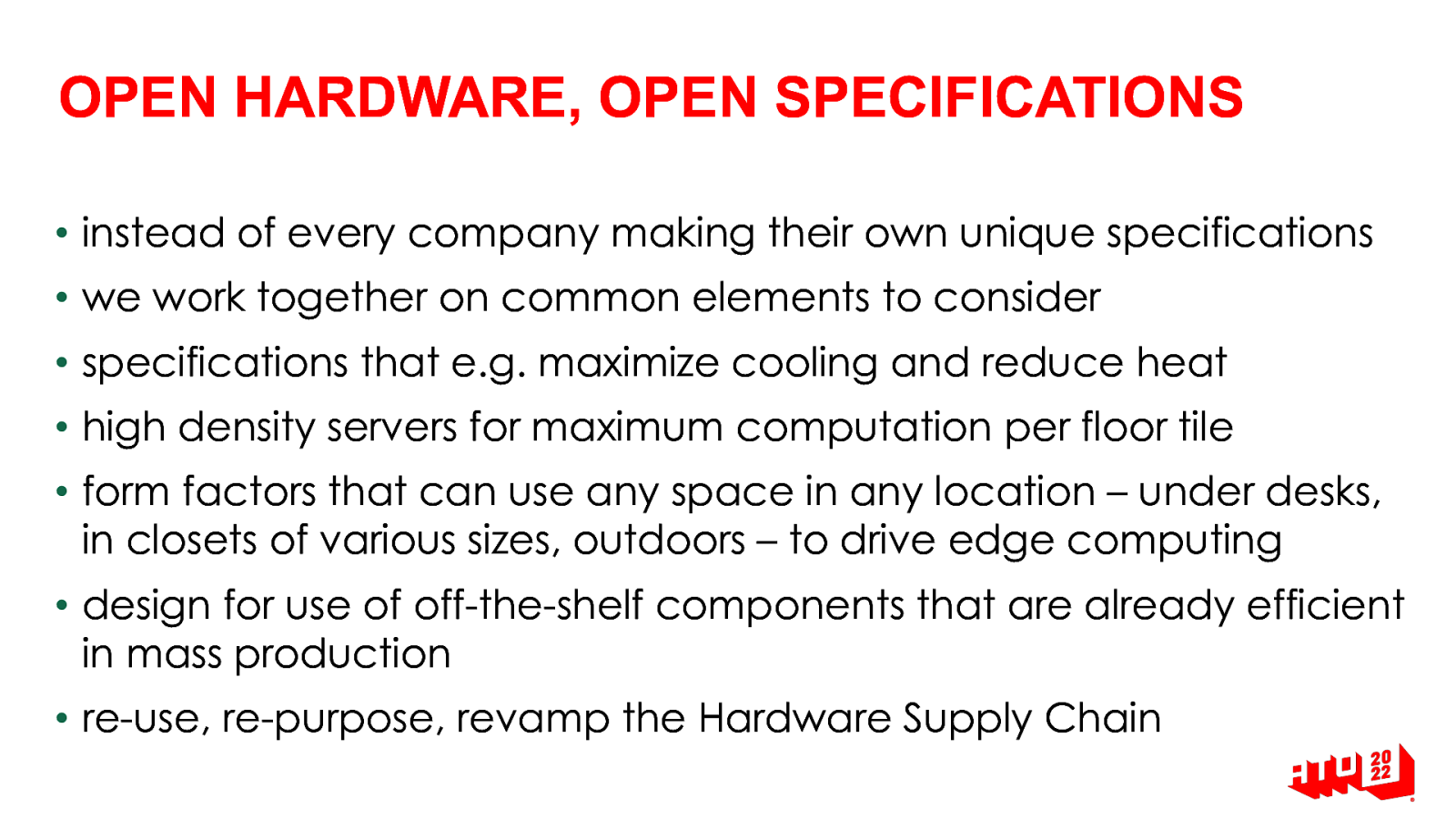
OPEN HARDWARE, OPEN SPECIFICATIONS • instead of every company making their own unique specifications • we work together on common elements to consider • specifications that e.g. maximize cooling and reduce heat • high density servers for maximum computation per floor tile • form factors that can use any space in any location – under desks, in closets of various sizes, outdoors – to drive edge computing • design for use of off-the-shelf components that are already efficient in mass production • re-use, re-purpose, revamp the Hardware Supply Chain

OPEN HARDWARE – OPEN COMPUTE PROJECT (OCP) Dual top -of-rack sw itches, netw ork fabric Com pute and storage nodes ENGINEERED SYSTEMS READY TO DEPLOY FLEXIBLE SCALE & CAPACITY Engineered, tested, supported as a single stack 6 to 96 nodes per rack >1,000 nodes per cluster 25/100G networking Roll it in, turn it on M ini-rack edge solutions Single or dual socket nodes, 25 GbE connectivity Flash-based storage nodes; M illions of IOPS & terabytes of capacity PURPOSE-BUILT CONFIGURATIONS Kubernetes Converged/HCI AI/ML STANDARD RACK SIZE & POWER No data center redesign Leverage existing power

https://constructionblog.autodesk.com/as-built-drawings/ challenge in hardware over software – need “as-built” documentation the “ground truth” isn’t necessarily the most recent git commit

in the screws came e CAD b the in welds build

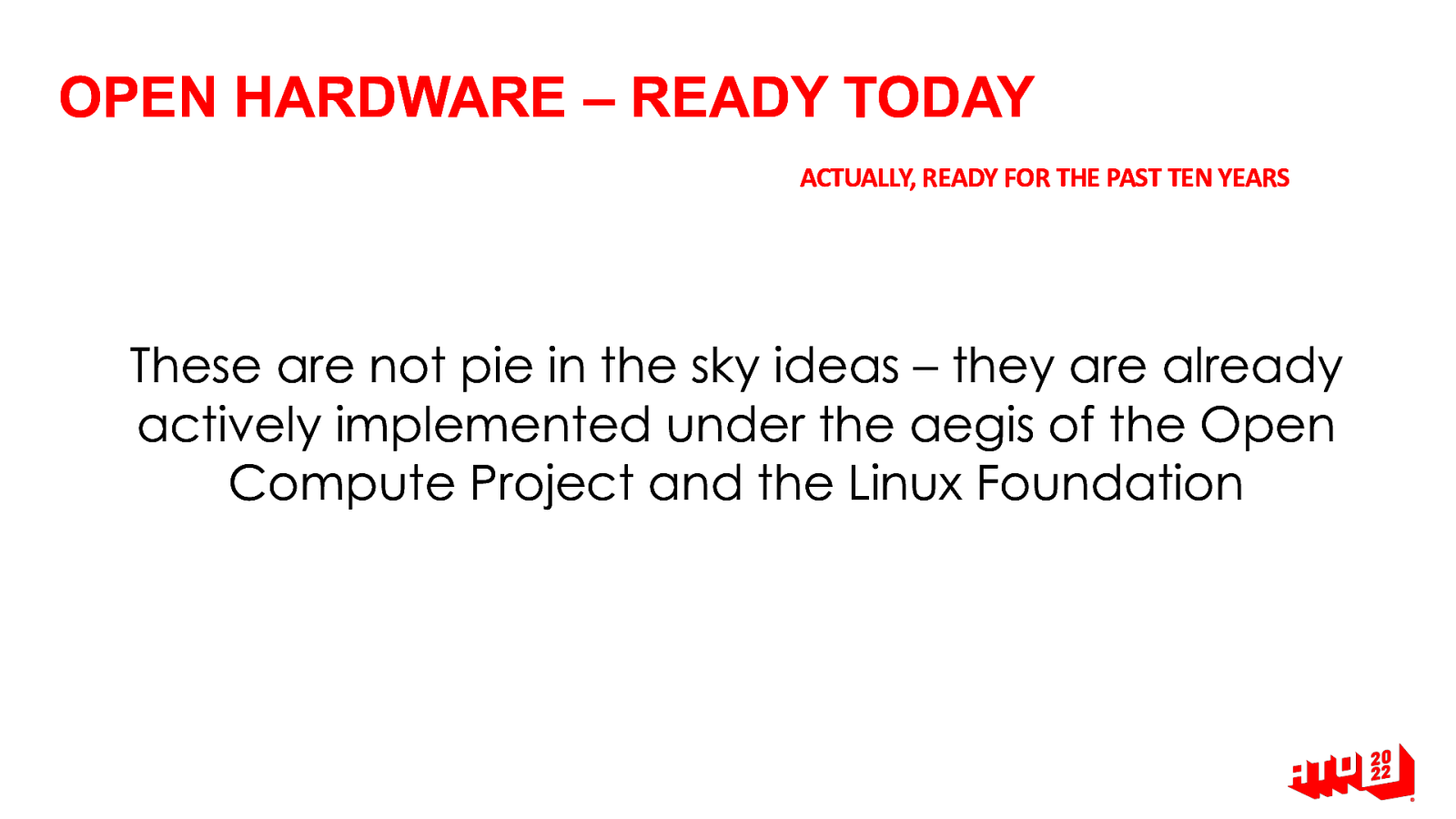
OPEN HARDWARE – READY TODAY ACTUALLY, READY FOR THE PAST TEN YEARS These are not pie in the sky ideas – they are already actively implemented under the aegis of the Open Compute Project and the Linux Foundation

members

projects

CONTRIBUTED PROJECT DISCOVERY EDGE ENCLOSURE https://github.com/opencomputeproject/Discovery


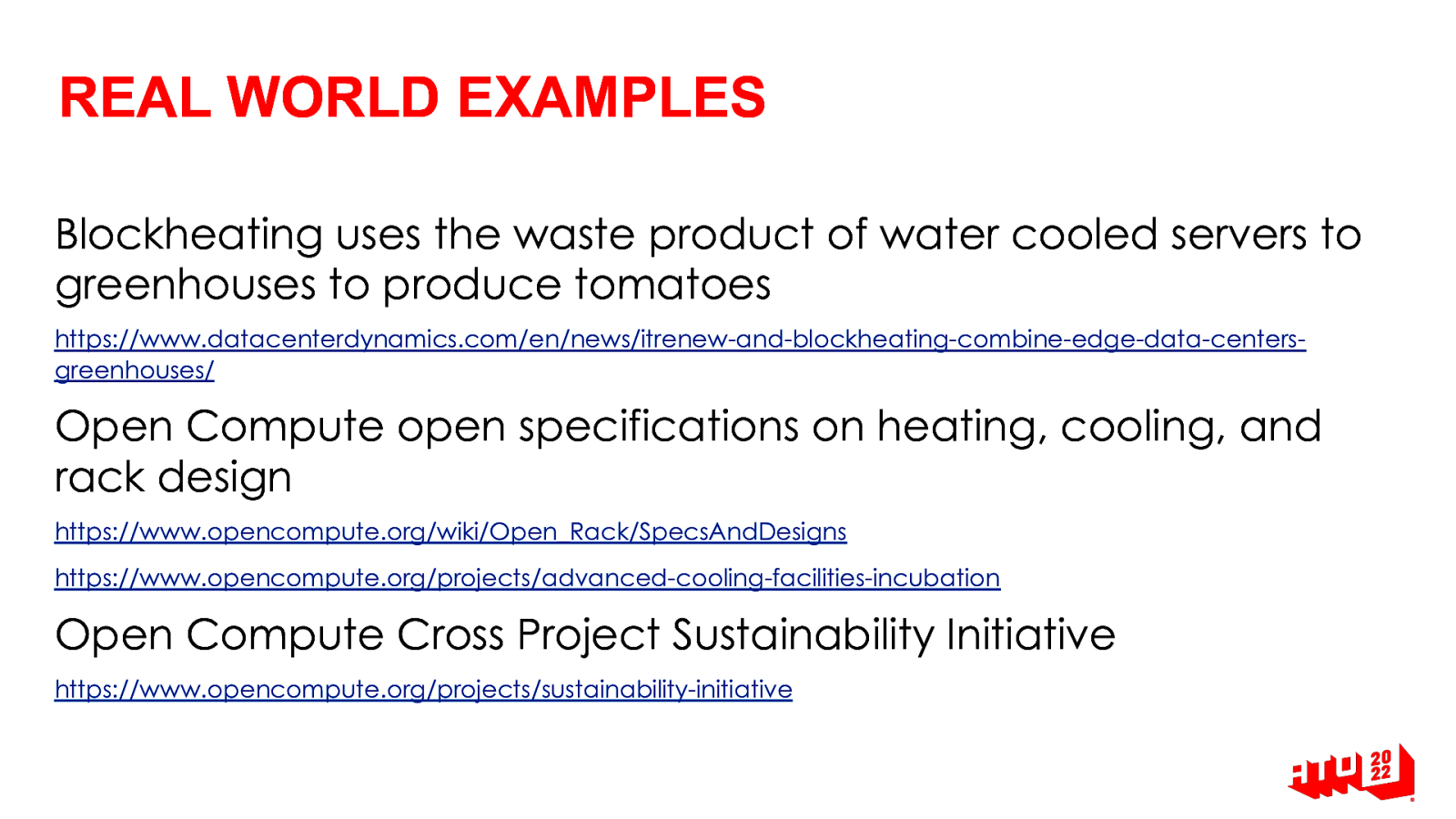
REAL WORLD EXAMPLES Blockheating uses the waste product of water cooled servers to greenhouses to produce tomatoes https://www.datacenterdynamics.com/en/news/itrenew-and-blockheating-combine-edge-data-centersgreenhouses/ Open Compute open specifications on heating, cooling, and rack design https://www.opencompute.org/wiki/Open_Rack/SpecsAndDesigns https://www.opencompute.org/projects/advanced-cooling-facilities-incubation Open Compute Cross Project Sustainability Initiative https://www.opencompute.org/projects/sustainability-initiative

CASE STUDY – AMSTERDAM …FOR GREENHOUSES
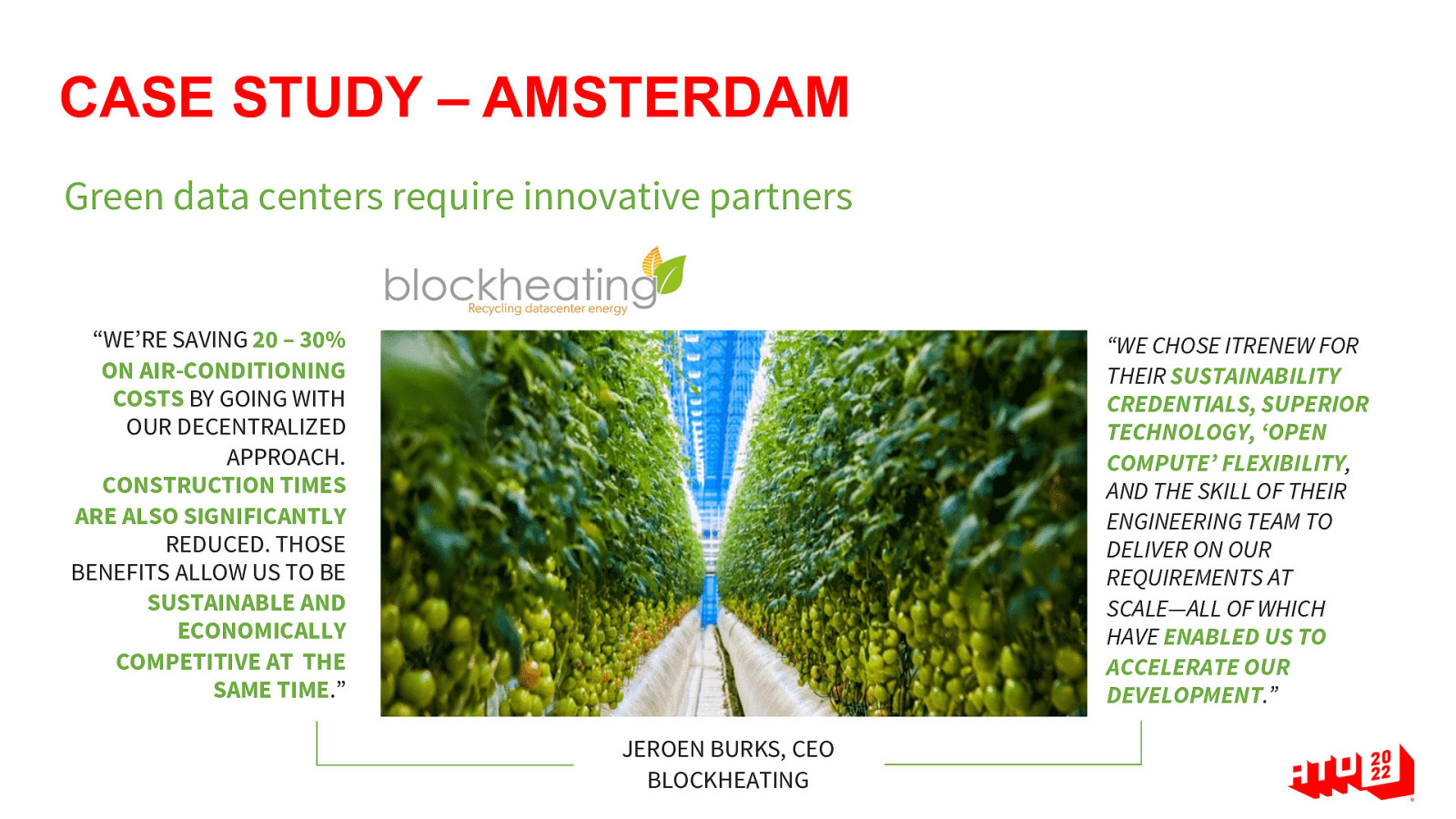
CASE STUDY – AMSTERDAM Green data centers require innovative partners “WE’RE SAVING 20 – 30% ON AIR-CONDITIONING COSTS BY GOING WITH OUR DECENTRALIZED APPROACH. CONSTRUCTION TIMES ARE ALSO SIGNIFICANTLY REDUCED. THOSE BENEFITS ALLOW US TO BE SUSTAINABLE AND ECONOMICALLY COMPETITIVE AT THE SAME TIME.” “WE CHOSE ITRENEW FOR THEIR SUSTAINABILITY CREDENTIALS, SUPERIOR TECHNOLOGY, ‘OPEN COMPUTE’ FLEXIBILITY, AND THE SKILL OF THEIR ENGINEERING TEAM TO DELIVER ON OUR REQUIREMENTS AT SCALE—ALL OF WHICH HAVE ENABLED US TO ACCELERATE OUR DEVELOPMENT.” JEROEN BURKS, CEO BLOCKHEATING
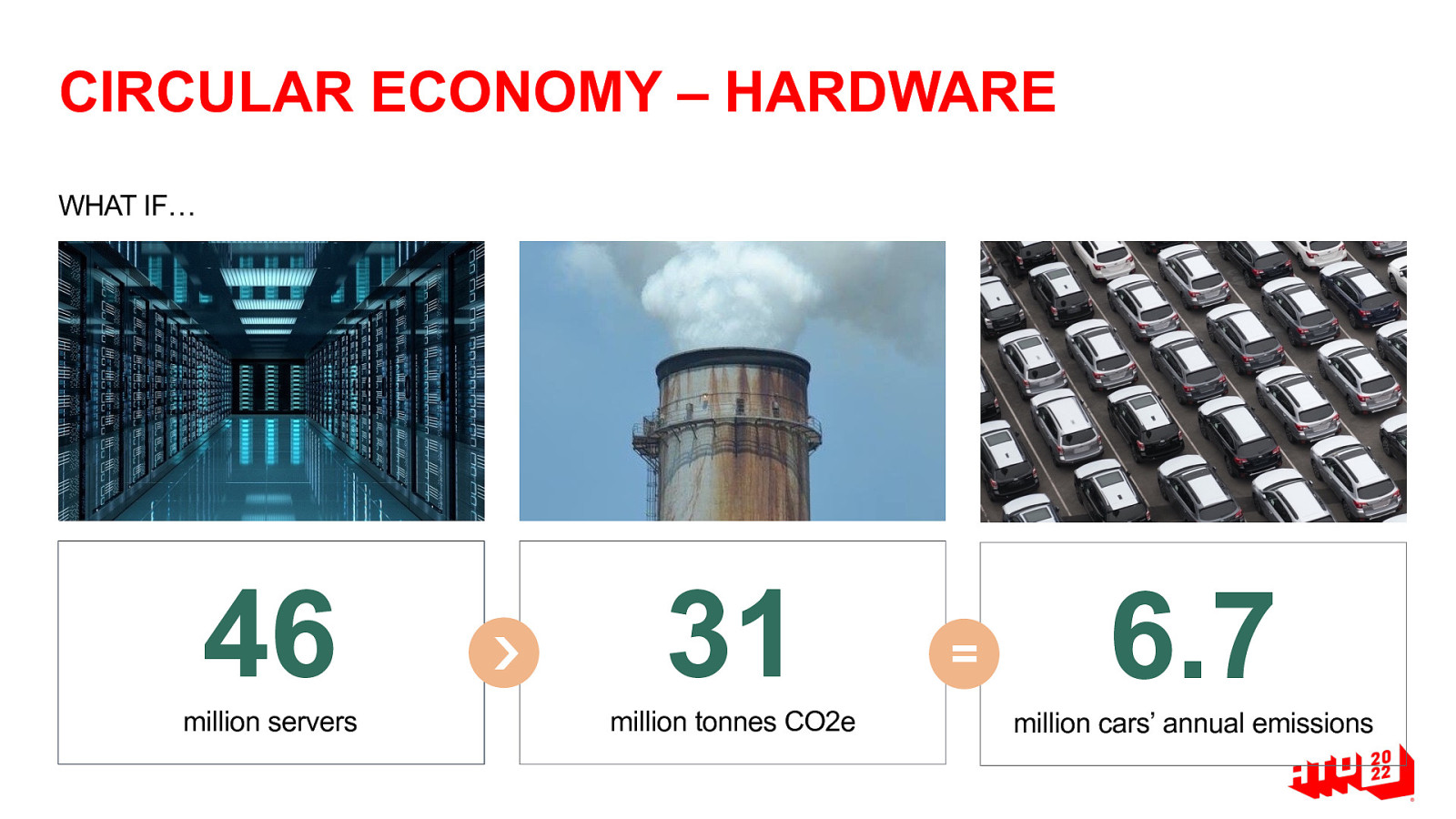
6.7 million cars’ annual emissions

KUBERNETES AT HOME • 4-node hyperscale cluster • >100 cores; up to 2 TB memory • 25G/100G networking; NVMe storage
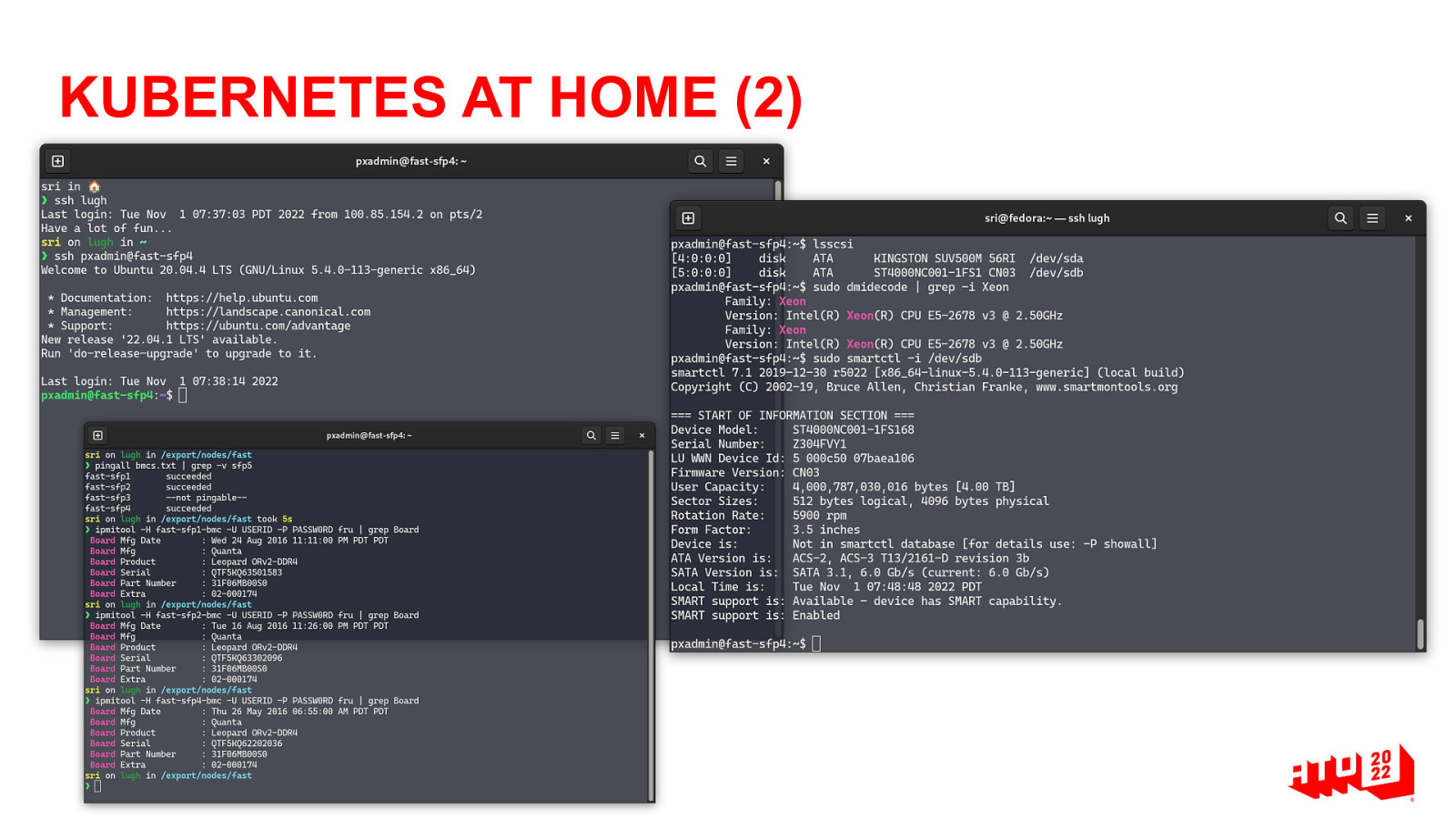
KUBERNETES AT HOME (2)
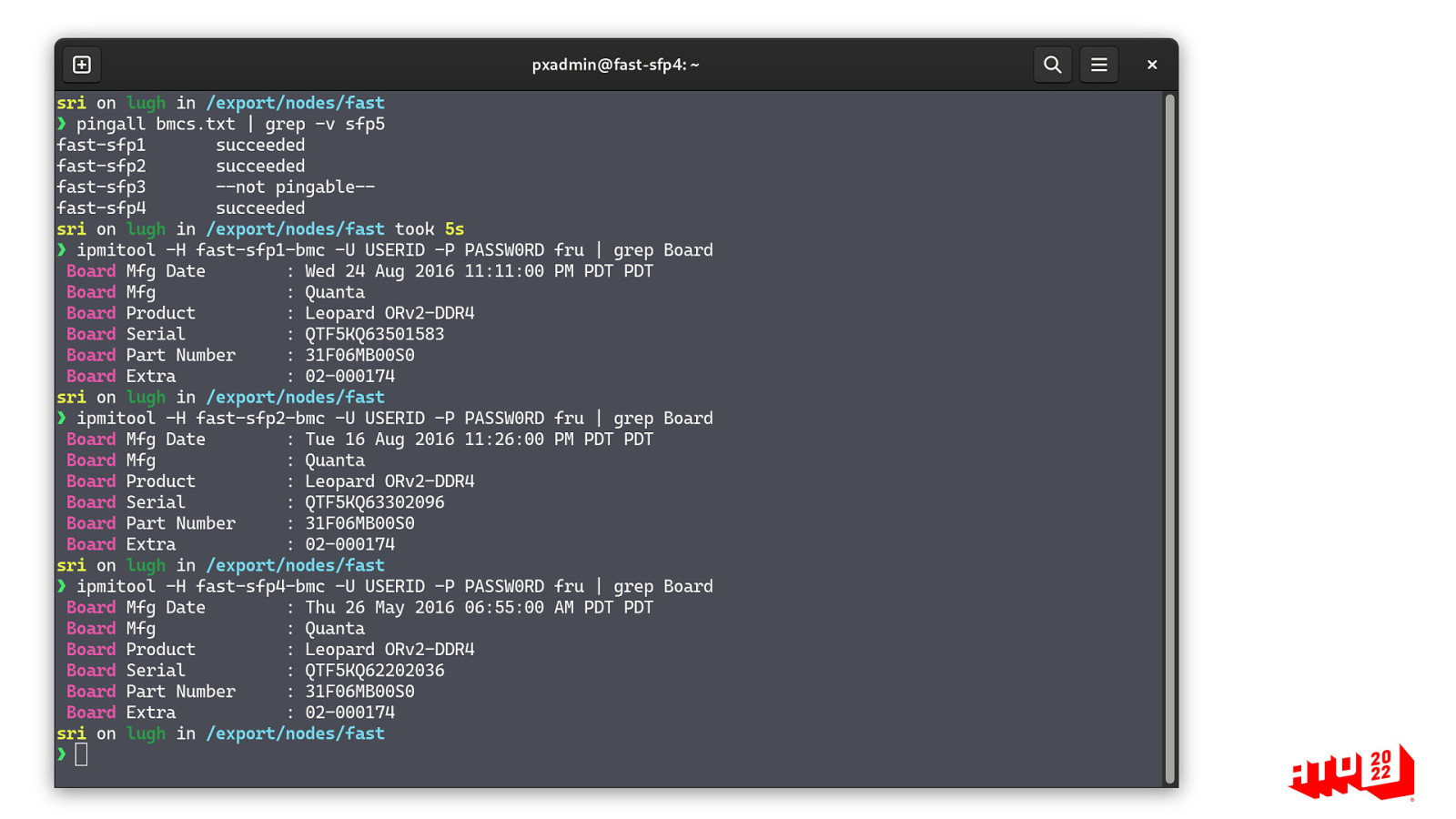
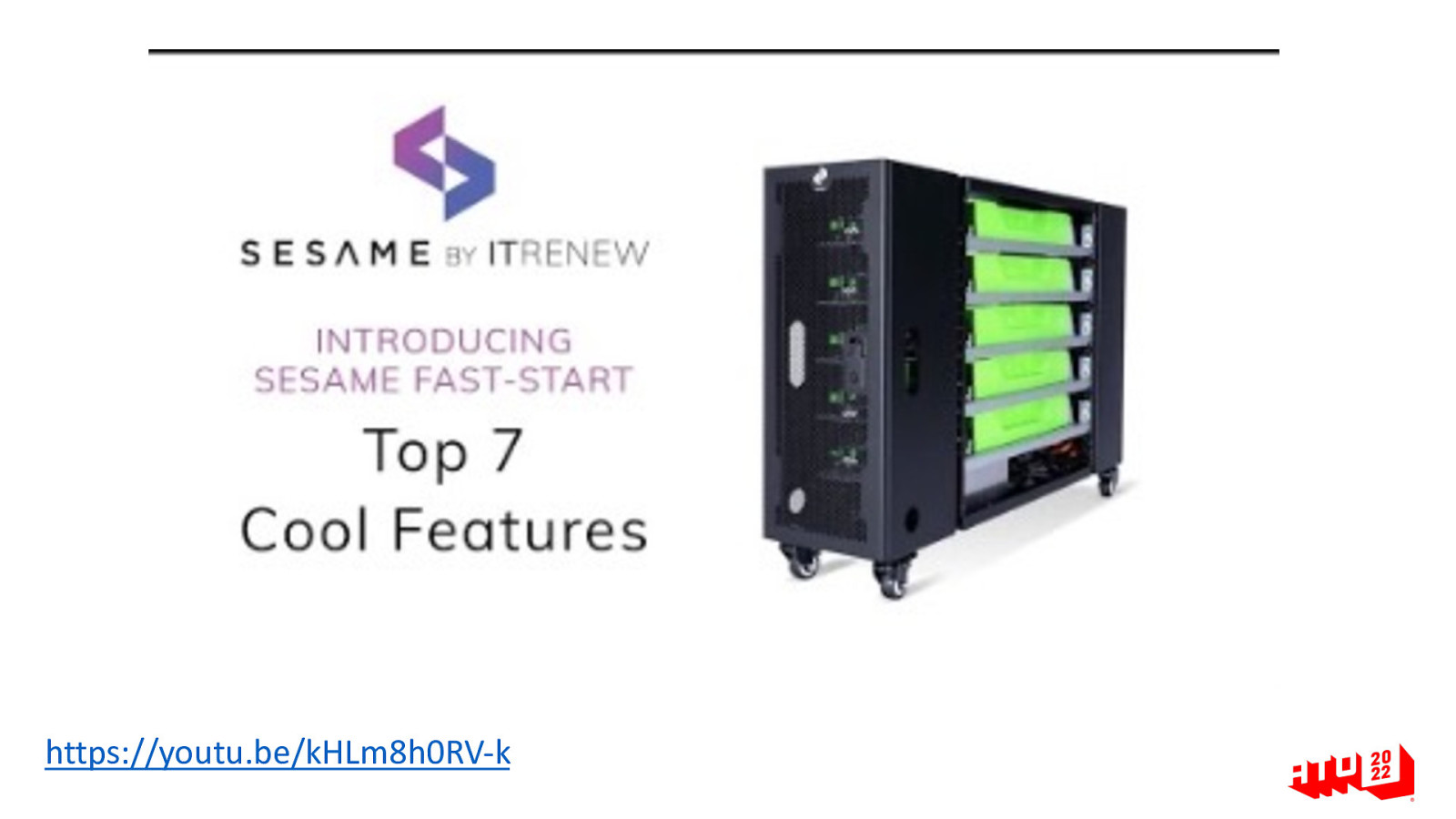
https://youtu.be/kHLm8h0RV-k
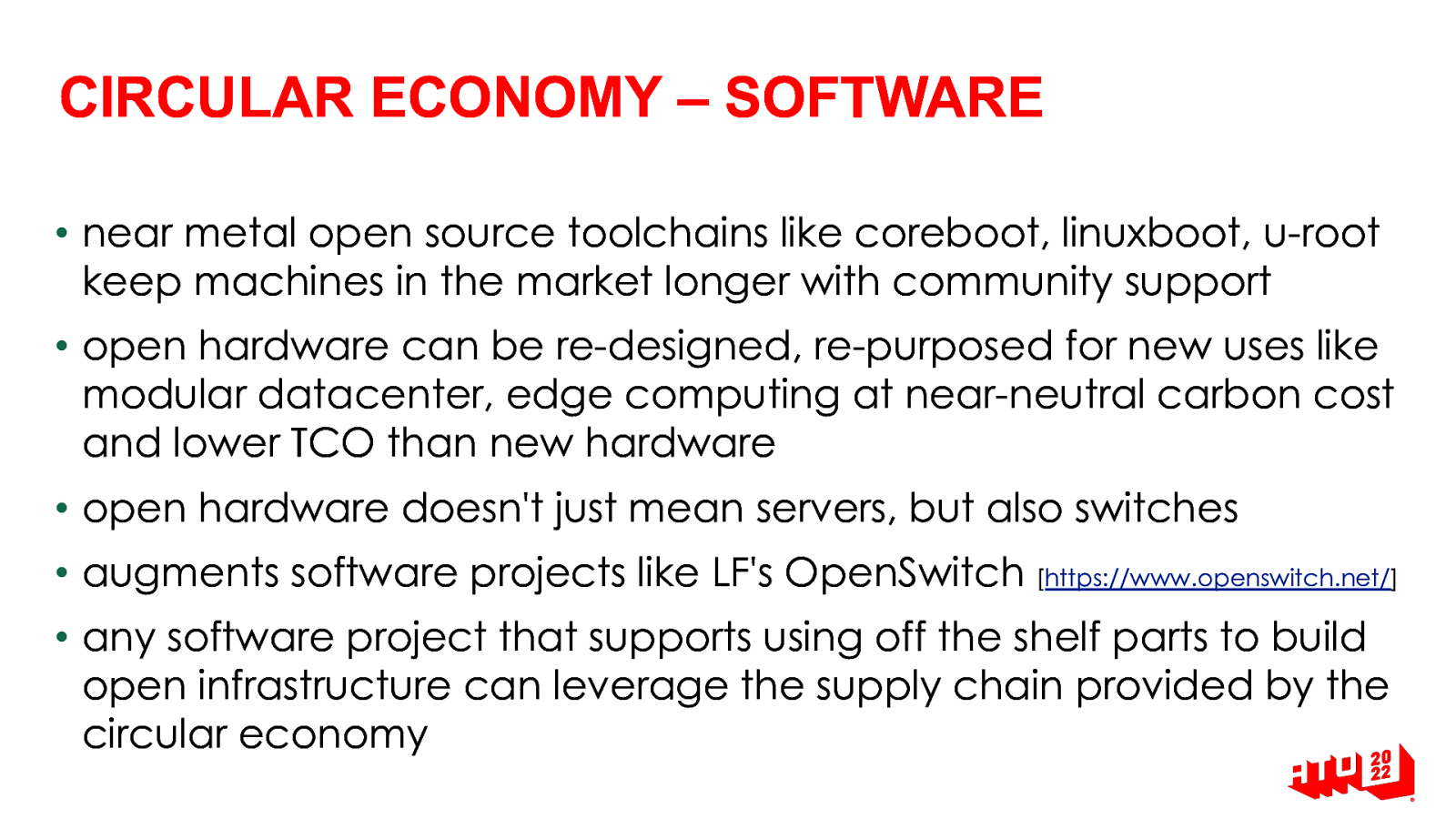
CIRCULAR ECONOMY – SOFTWARE • near metal open source toolchains like coreboot, linuxboot, u-root keep machines in the market longer with community support • open hardware can be re-designed, re-purposed for new uses like modular datacenter, edge computing at near-neutral carbon cost and lower TCO than new hardware • open hardware doesn’t just mean servers, but also switches • augments software projects like LF’s OpenSwitch [https://www.openswitch.net/] • any software project that supports using off the shelf parts to build open infrastructure can leverage the supply chain provided by the circular economy
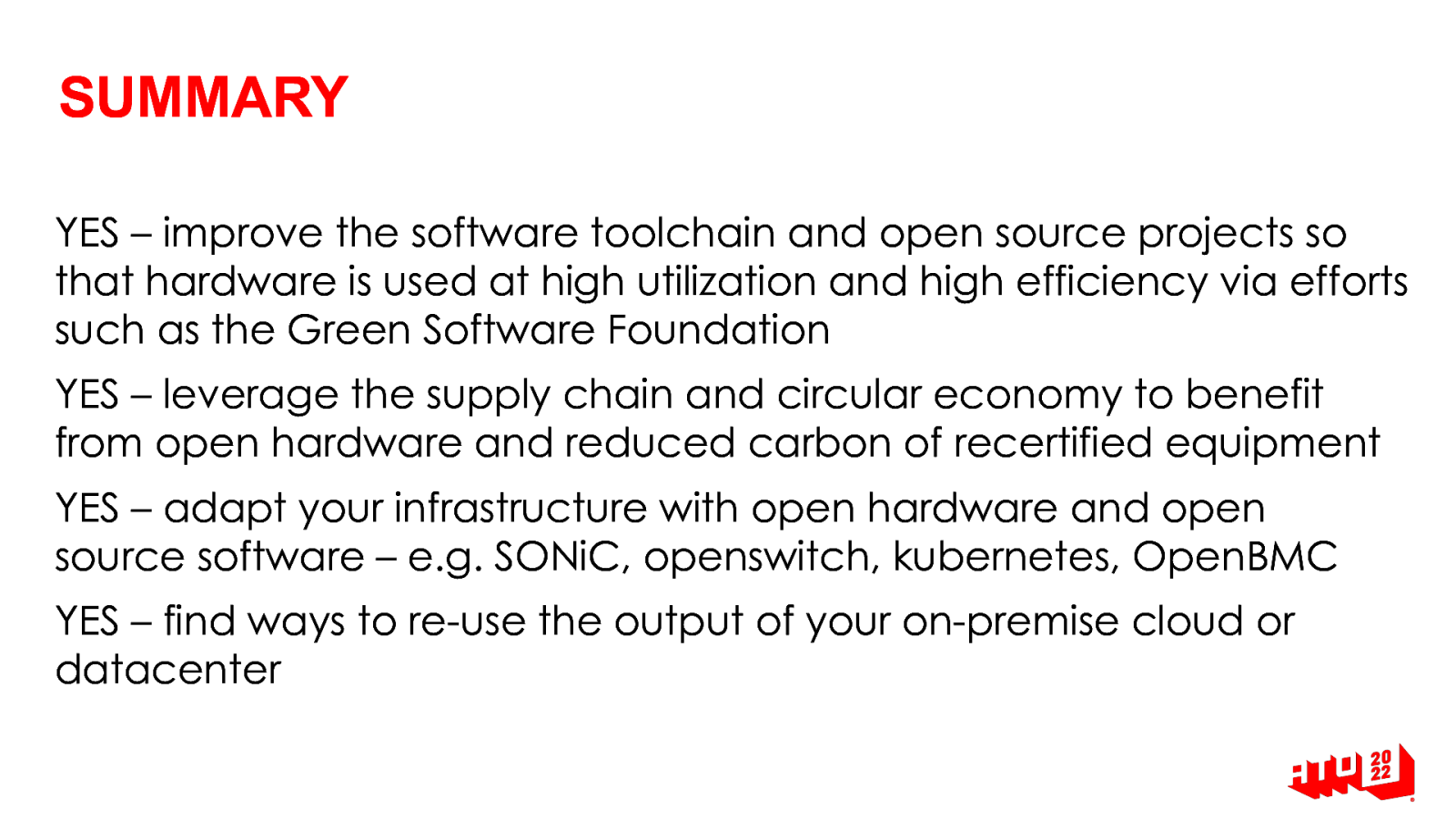
SUMMARY YES – improve the software toolchain and open source projects so that hardware is used at high utilization and high efficiency via efforts such as the Green Software Foundation YES – leverage the supply chain and circular economy to benefit from open hardware and reduced carbon of recertified equipment YES – adapt your infrastructure with open hardware and open source software – e.g. SONiC, openswitch, kubernetes, OpenBMC YES – find ways to re-use the output of your on-premise cloud or datacenter
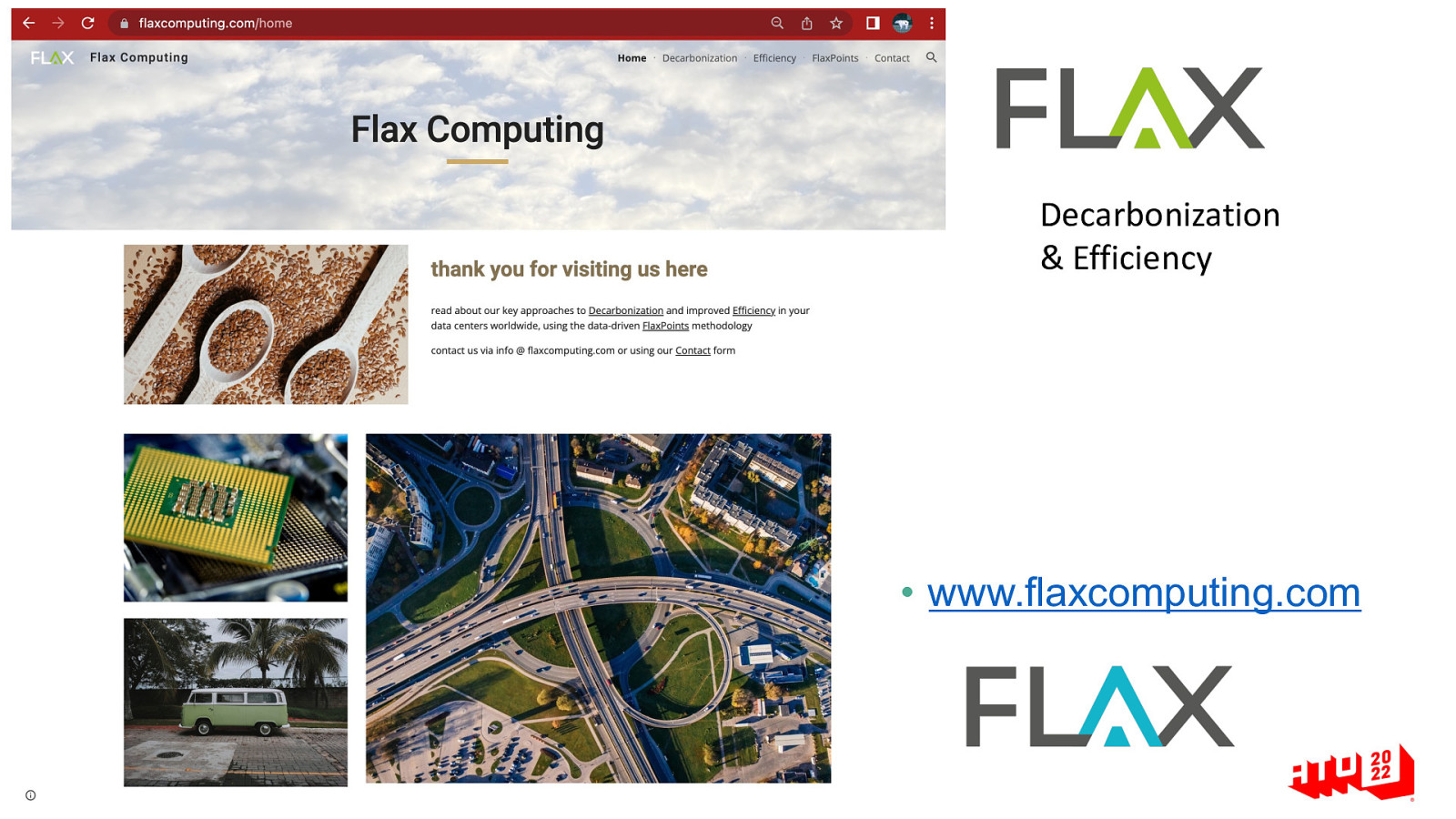
Decarbonization & Efficiency • www.flaxcomputing.com
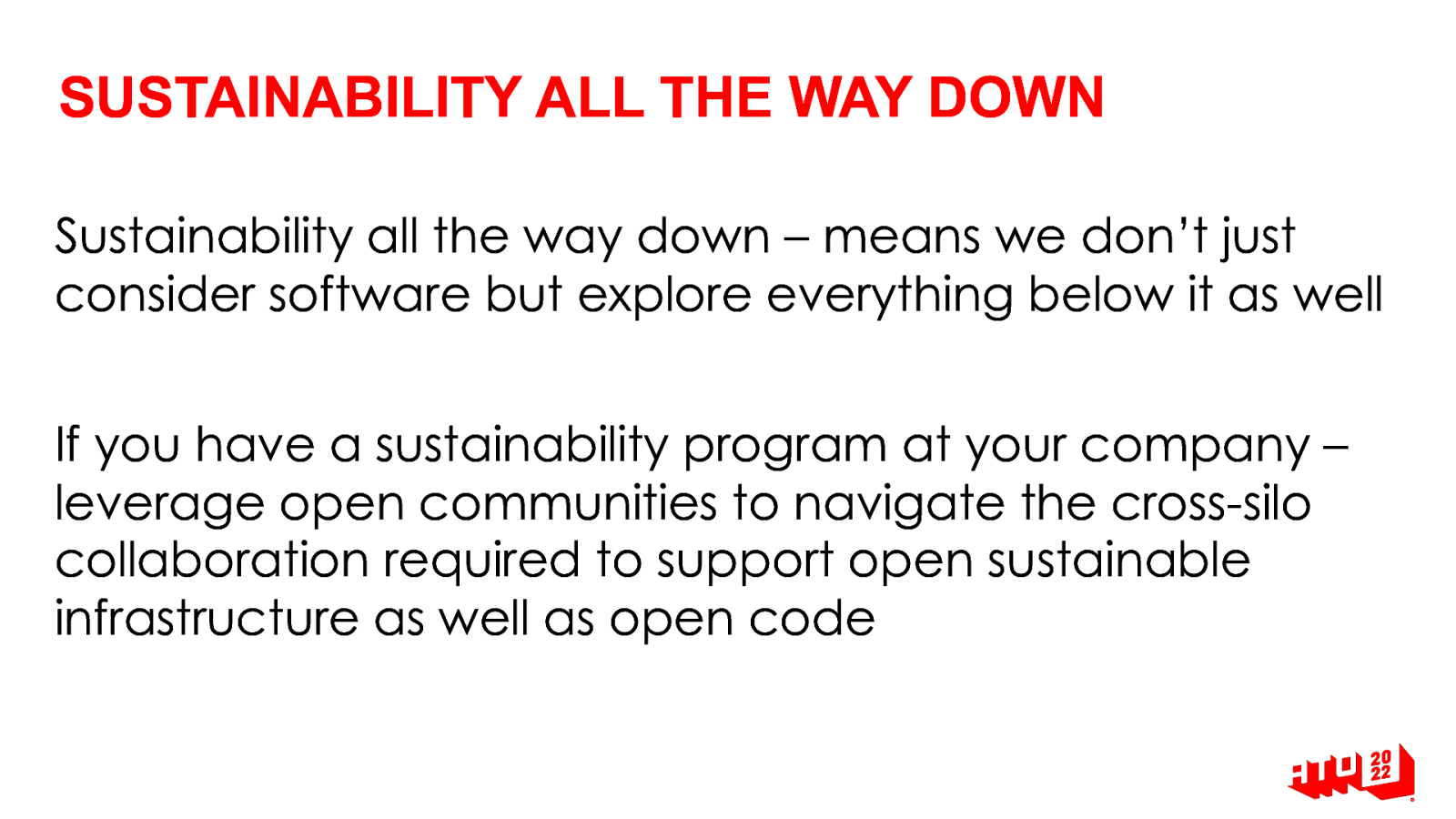
SUSTAINABILITY ALL THE WAY DOWN Sustainability all the way down – means we don’t just consider software but explore everything below it as well If you have a sustainability program at your company – leverage open communities to navigate the cross-silo collaboration required to support open sustainable infrastructure as well as open code
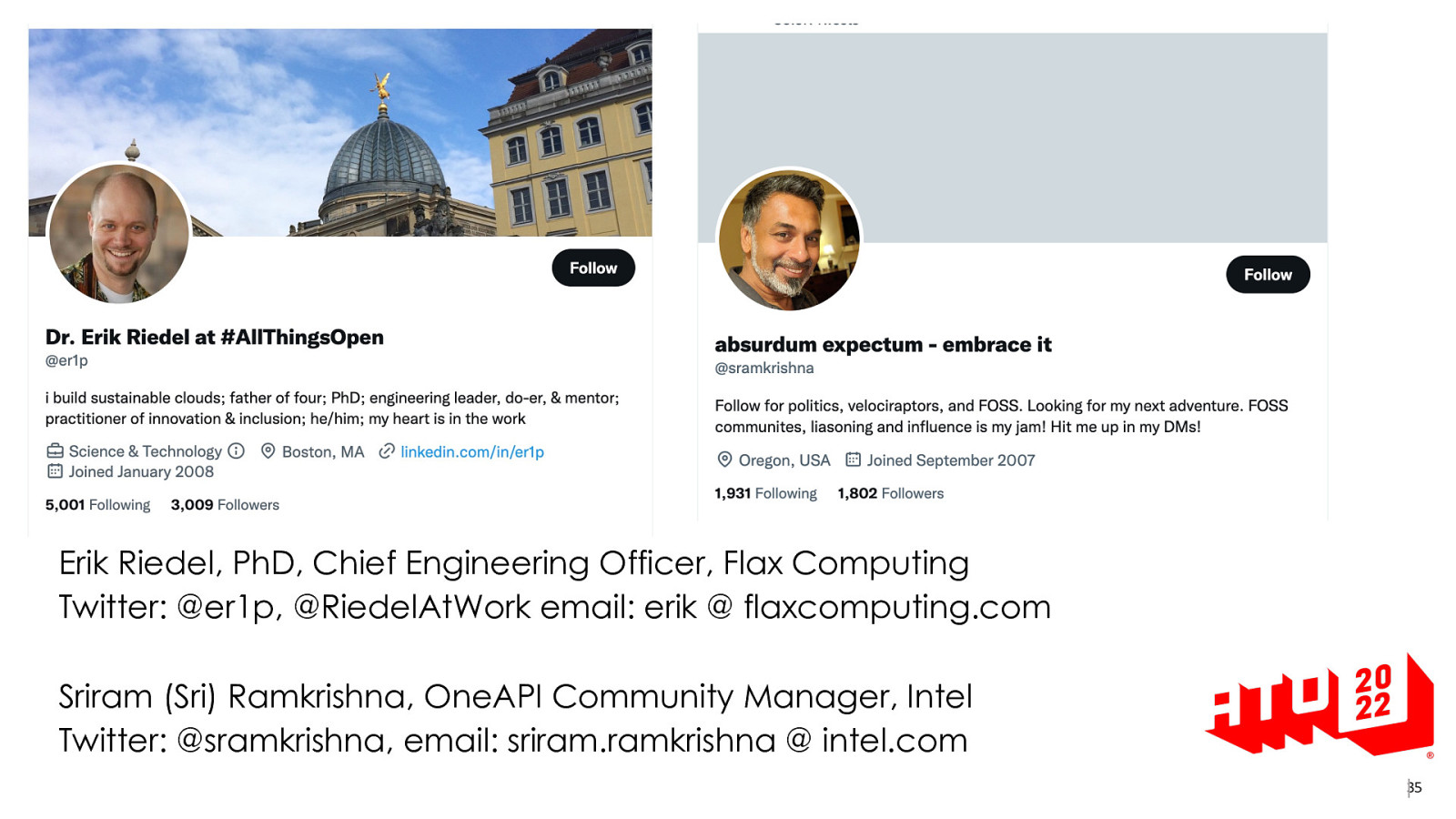
Erik Riedel, PhD, Chief Engineering Officer, Flax Computing Twitter: @er1p, @RiedelAtWork email: erik @ flaxcomputing.com Sriram (Sri) Ramkrishna, OneAPI Community Manager, Intel Twitter: @sramkrishna, email: sriram.ramkrishna @ intel.com I35
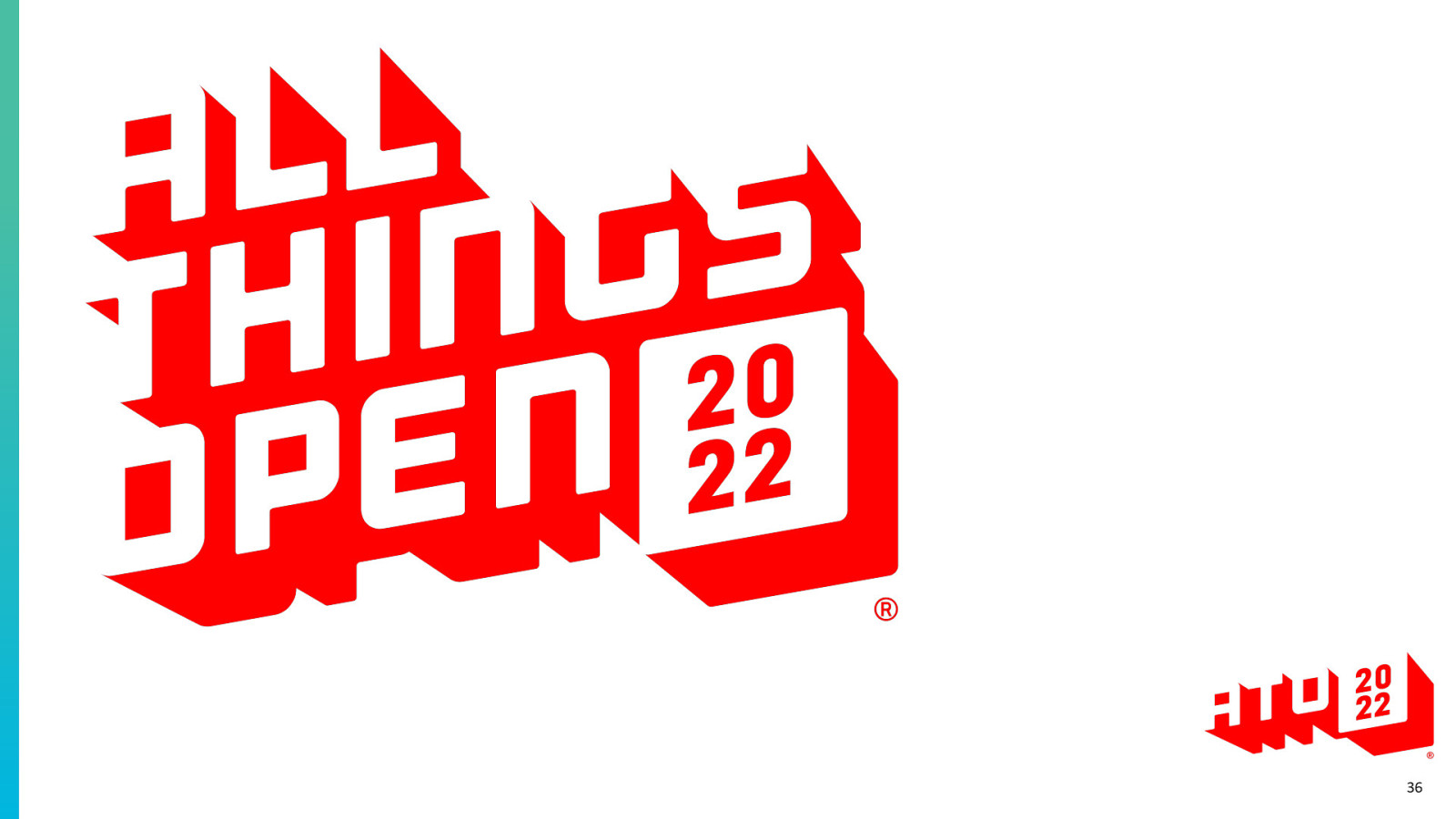
36
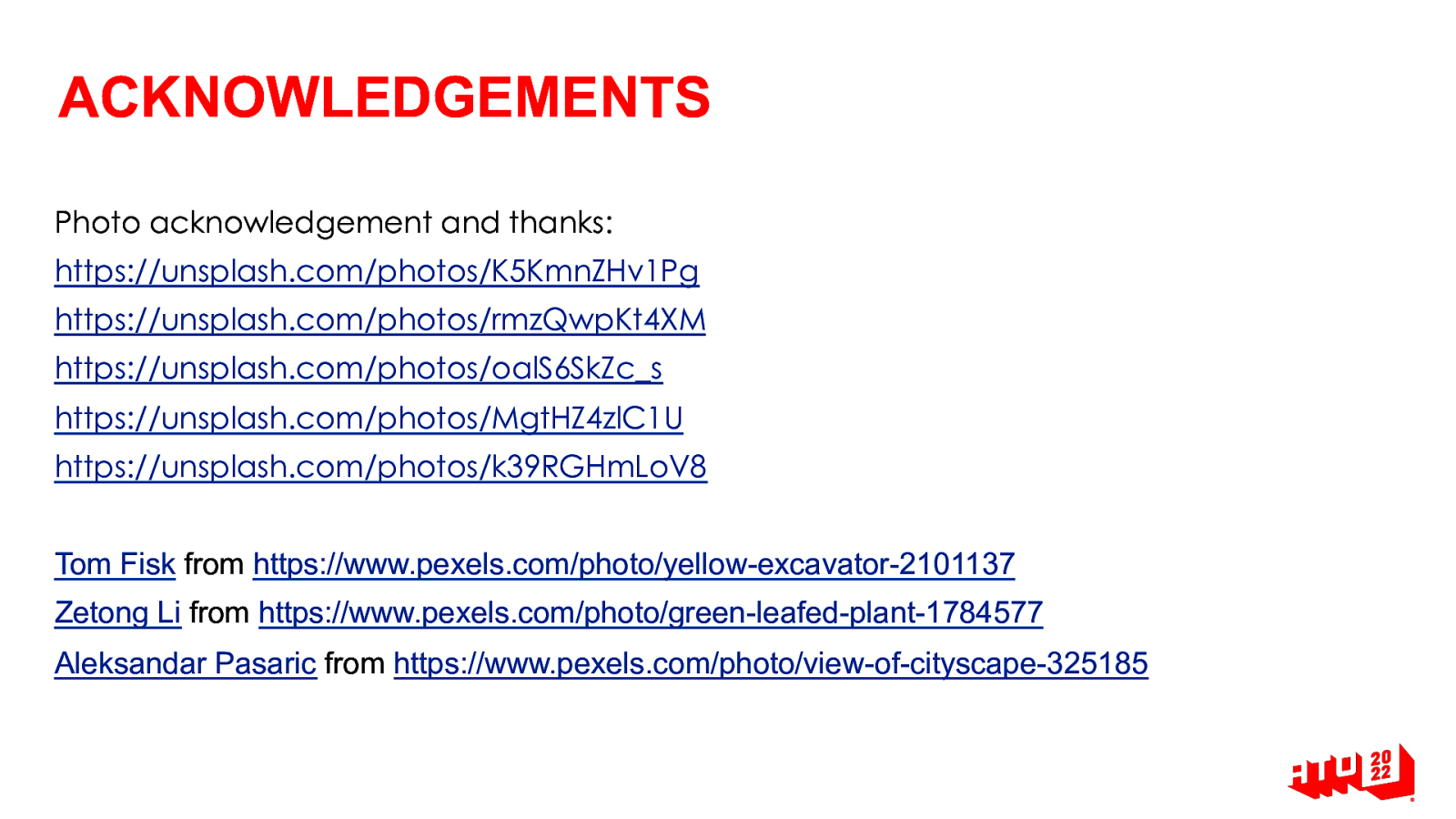
ACKNOWLEDGEMENTS Photo acknowledgement and thanks: https://unsplash.com/photos/K5KmnZHv1Pg https://unsplash.com/photos/rmzQwpKt4XM https://unsplash.com/photos/oalS6SkZc_s https://unsplash.com/photos/MgtHZ4zlC1U https://unsplash.com/photos/k39RGHmLoV8 Tom Fisk from https://www.pexels.com/photo/yellow-excavator-2101137 Zetong Li from https://www.pexels.com/photo/green-leafed-plant-1784577 Aleksandar Pasaric from https://www.pexels.com/photo/view-of-cityscape-325185
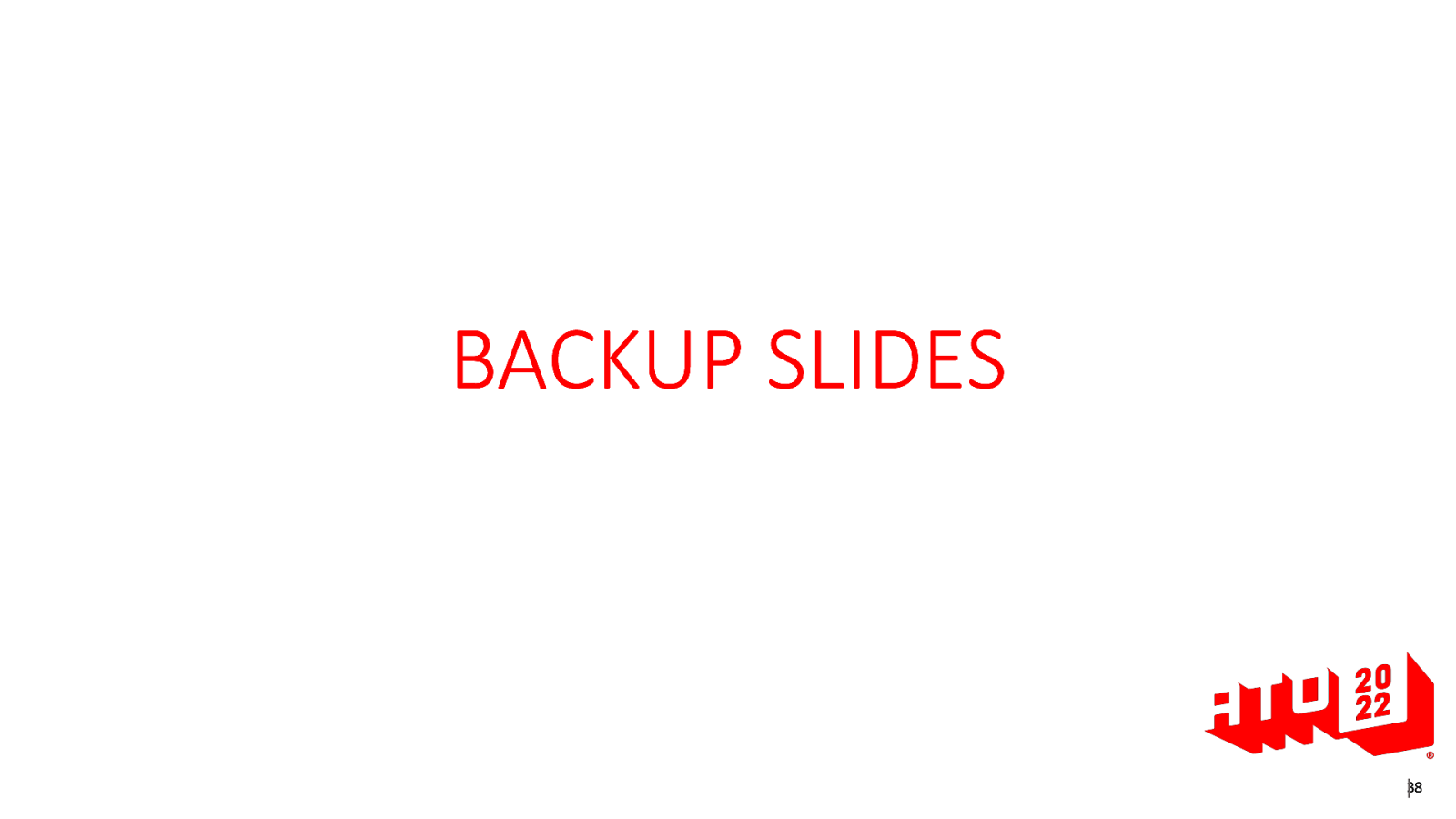
BACKUP SLIDES I38
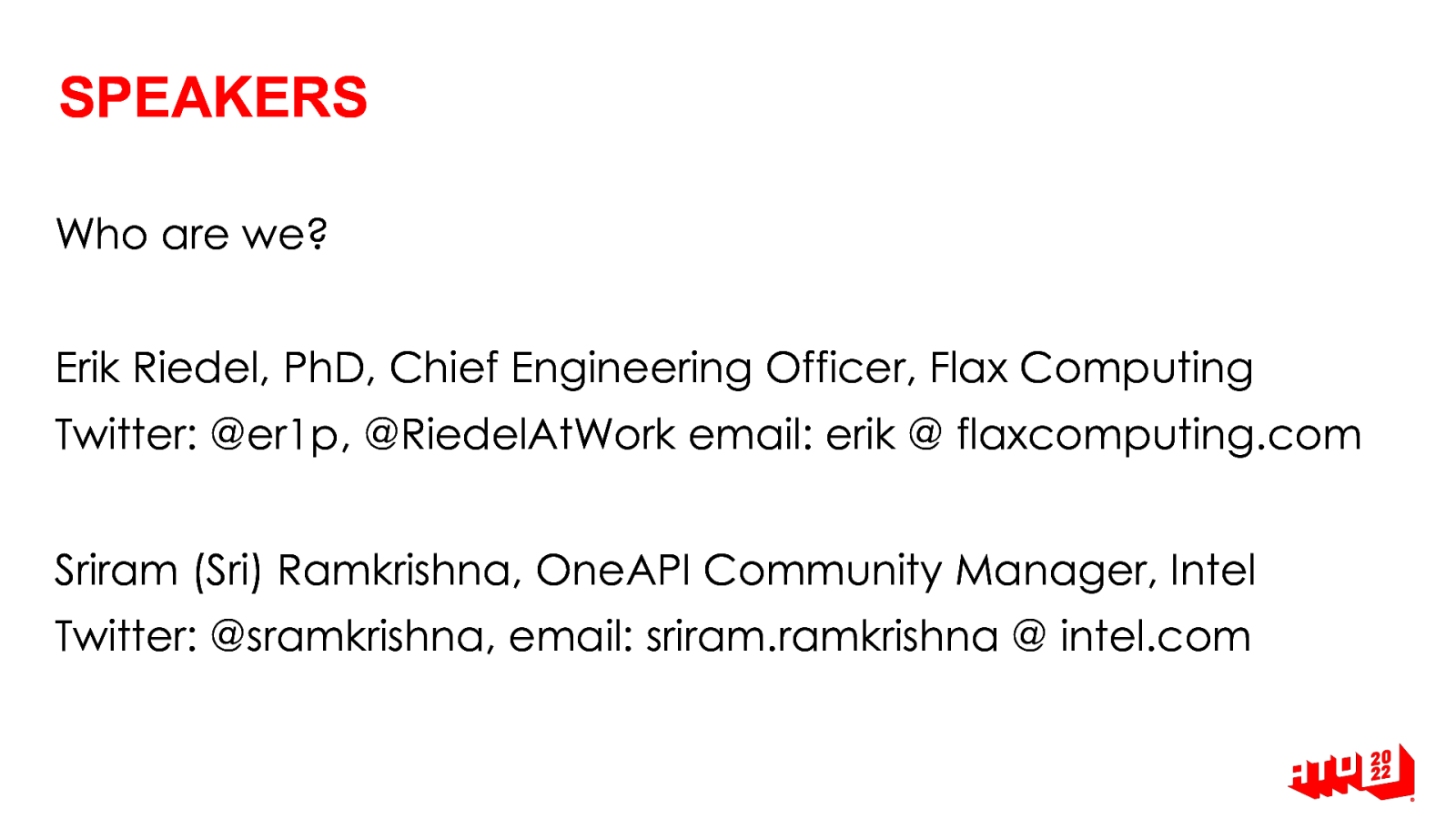
SPEAKERS Who are we? Erik Riedel, PhD, Chief Engineering Officer, Flax Computing Twitter: @er1p, @RiedelAtWork email: erik @ flaxcomputing.com Sriram (Sri) Ramkrishna, OneAPI Community Manager, Intel Twitter: @sramkrishna, email: sriram.ramkrishna @ intel.com